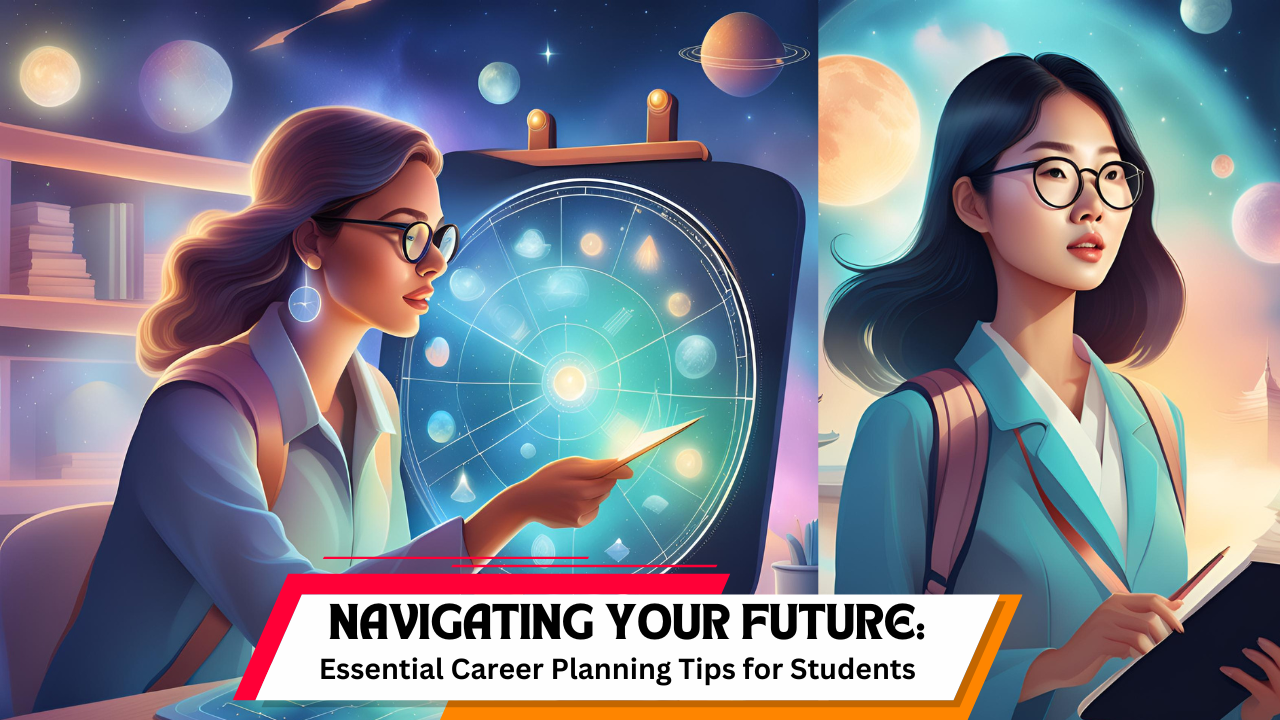Let’s Unlocking Potential: Early career exploration can significantly shape your success by providing clarity, direction, and motivation from an early age. Here are some of the key ways early career exploration can impact your future: Unlocking potential
“The earlier you start exploring different career paths, the better prepared you’ll be to make informed decisions about your future.” — Bimlesh Kumar
1. Increased self-awareness
Exploring different careers helps you understand your interests, strengths, and passions. This self-awareness is crucial for making informed decisions about your educational and career paths.
2. Informed decision making
By learning about different occupations, you can make more informed choices about the topics and skills you need to develop. This can prevent wasting time and resources on paths that are not aligned with your long-term goals.
3. Skill development
Early career exploration can guide you in gaining relevant skills and experience and help to Unlocking potential. Whether through internships, part-time jobs or volunteer work, you can build a strong base of practical skills that will be valuable in your future career.

4. Networking opportunities
Connecting with professionals in fields of interest can expand your network. These contacts can provide guidance, advice and potentially job opportunities in the future.
5. Realistic expectations
Understanding the day-to-day realities of different careers helps set realistic expectations. This can prevent disillusionment and increase job satisfaction when you enter the workforce.
6. Increased motivation and engagement
Having a clear career goal can motivate you to excel in your studies and extracurricular activities. This increased involvement can lead to better academic performance and personal growth.
7. Adaptability and flexibility
Early exposure to different careers helps you be more adaptable and open to different opportunities. If your interests or job market conditions change, you’ll be better prepared for change.
8. Financial Planning
Learning about the financial aspects of different careers, including potential salaries and the investment required in education or training, can help you plan for your future more effectively.
9. Personal Satisfaction
Pursuing a career that aligns with your passions and values can lead to greater personal satisfaction and overall happiness. Early exploration helps you identify careers that will be meaningful and satisfying.
10. Long-Term Success
Overall, early career exploration can set you on a path to long-term success by aligning your educational and career choices with your personal goals and market opportunities. This empowers you to take proactive steps toward a fulfilling and successful career.

“Early career exploration isn’t just about finding a job; it’s about discovering who you are and where you belong in the world of work.” — B.kumar
Practical Steps for Early Career Exploration: Unlocking Potential: How Early Career Exploration Can Shape Your Success
- Research: Use online resources, career fairs, and informational interviews to gather information about different careers.
- Experience: Participate in internships, job shadowing, and volunteer work to gain first-hand experience.
- Education: Take courses related to your areas of interest and participate in extracurricular activities.
- Networking: Connect with professionals in your fields of interest through social media, networking events, and professional organizations.
- Reflection: Regularly reflect on your experiences and interests to refine your career goals.
By actively exploring careers, you can build a strong foundation for a successful and fulfilling future.
Navigating the labyrinth of career choices is a journey often marked by uncertainty, but the rewards of starting early are immeasurable. Imagine planting a seed and watching it grow into a towering tree. This analogy perfectly encapsulates the essence of early career exploration. By delving into your interests, strengths, and aspirations at a young age, you set the stage for a fulfilling and successful professional life.
The Power of Self-Discovery
Early career exploration is more than just choosing a job; it’s about understanding who you are and what you value. During adolescence and early adulthood, you are in a prime position to explore various fields, internships, and volunteer opportunities. This period of self-discovery is crucial. It allows you to test different waters, understand your strengths and weaknesses, and refine your interests.
Consider the story of Maya, a high school student who loved animals. By volunteering at a local veterinary clinic, she discovered a passion for animal care, which later guided her to pursue a degree in veterinary science. Without this early exploration, Maya might have never realized her true calling.
Building a Robust Skill Set
Starting early gives you the luxury of time to build a versatile skill set. In today’s dynamic job market, employers look for individuals who are not just academically proficient but also possess soft skills such as communication, teamwork, and problem-solving. By engaging in diverse experiences, you cultivate these essential skills.
For instance, Alex, a college freshman interested in business, took on a summer internship at a startup. The hands-on experience taught him about project management, customer service, and the importance of adaptability. These skills proved invaluable when he later launched his own successful business.
Networking: Your Lifeline to Opportunities
One of the most overlooked aspects of early career exploration is the network you build along the way. Connections made during internships, volunteer work, or even part-time jobs can open doors to future opportunities.
Networking is not merely about collecting contacts; it’s about forming genuine relationships that can provide mentorship, guidance, and support.
Take the case of Jamie, who worked part-time at a graphic design firm during college. Her dedication and enthusiasm impressed her supervisor, who later became her mentor. This relationship not only helped Jamie refine her design skills but also led to a full-time job offer after graduation.
Clarifying Your Career Path
The beauty of early career exploration is that it helps clarify your career path, often saving you from costly missteps. By trying out different roles and industries, you gain insights into what you enjoy and what you don’t, helping you make informed decisions about your future.
Emily, for example, initially thought she wanted to be a lawyer. After shadowing a lawyer for a few months, she realized that the legal field wasn’t for her. This revelation led her to explore other options, eventually finding her passion in journalism. Had she not explored early, she might have spent years pursuing a path that didn’t align with her true interests.
Gaining a Competitive Edge
In the competitive job market, early explorers have a distinct advantage. They enter the workforce with a clearer understanding of their goals, a robust skill set, and a strong network. Employers value this preparedness, making early career explorers more attractive candidates.
Consider the story of Sam, who, through early exploration, discovered his interest in technology. By the time he graduated, he had multiple internships, a portfolio of projects, and connections in the tech industry. This made him a standout candidate and helped him secure a coveted position at a leading tech company.
“Early career exploration is like planting seeds of possibility. It nurtures curiosity, fosters growth, and lays the groundwork for a fulfilling and successful career journey.” — B.kumar

Conclusion
Unlocking potential: Unlocking your potential through early career exploration is akin to setting a strong foundation for a skyscraper. It requires time, effort, and sometimes a bit of trial and error, but the results are worth it.
By starting early, you embark on a journey of self-discovery, skill-building, and networking that shapes your future success. So, dive into the sea of possibilities, explore with curiosity, and watch as you unlock doors to a fulfilling and prosperous career. Your future self will thank you.







